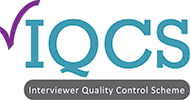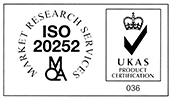MARKET RESEARCH GLOSSARY
GLOSSARY
Accompanied Shopping Trips (ASTs)
Accompanied Shopping Trips are one of the most effective market research techniques of understanding a consumer’s shopping behaviour. A moderator/researcher shadows a consumer on a shopping trip to see first hand how they interact with brands and products, gaining insight into their conscious and subconscious needs.
Ad Hoc Research
Ad hoc market research refers to studies that are commissioned in response to a specific set of issues or questions at a determined point in time to help resolve issues or initiatives arising within the client organisation.
Advertising Claim Substantiation
Advertising claim substantiation research usually involves the testing of a product’s performance in order to prove that the claims made in advertising can be upheld.
Advertising Concept Testing
Advertising concept testing can either be qualitative or quantitative in nature and involves the testing of initial advertising concepts or those executions that are more finalised. These tests are used to assess the relevance, impact, understanding, appeal, and potential success.
Advertising Effectiveness Research
Advertising effectiveness research is used to determine whether a specific advertisement or advertising campaign meets the pre-described marketing goals and objectives.
Advertising Recall
Advertising recall research is designed to measure the recall and impact of a specific advertisement or set of advertisements by assessing the extent to which the respondent can recall the content measuring advertising effectiveness.
Advertising Research
Advertising Market Research is often conducted by media agencies in order to improve the targeting of creative towards relevant audiences. Advertising research is undertaken to refine an execution, or following a campaign launch to monitor the extent to which campaign objectives are being met.
Advertising Testing
Advertising testing market research focuses on testing advertisements across a range of mediums usually conducted at the final stage before the launch.
Advertising Tracking Market Research
Advertising tracking market research measures the appeal, relevance, and impact of an advertisement in terms of its effects on perceptions, awareness, consideration, and usage.
At-Home Testing
At-home testing involves respondent’s having a specific product to test in their home, there will be a set timing for the product to be placed and instructions on how it should be used.
Attitudinal Segmentation
Attitudinal segmentation is grouping a brand’s target market into segments based on a set of shared attitudes they have.
B2B Research
B2B Research (Business to Business Research), refers to any form of research undertaken with corporate customers.
B2C Research
B2C Research (Business to Consumer research), relates to any form of research where a business, company, or organisation seeks the views of consumers regarding an aspect of their brand or its delivery.
Behavioural Economics
Behavioural economics is a method of market research that explores what influences people to make decisions that are ‘economically irrational’. makes use of methods of experimentation used by psychologists to study the way people make decisions.
Behavioural Segmentation
Behavioural segmentation is the analysis of consumers’ specific patterns in behaviour around a brand or service, enabling the consumers to be segmented based on this behaviour.
Blind Testing
Blind testing is when referring to certain aspects of a brand or a product are kept hidden to ensure there is no bias when gauging a consumer’s feelings towards said brand or product.
Brand Funnel
Brand funnel is used as a way of analysing consumers’ relationships with brands through different stages.
Brand Tracking
Brand tracking is a method of continuously measuring brand performance and health, typically covering awareness, consideration, usage, and loyalty, as well as attitudes and perceptions.
Bulletin Boards
Bulletin boards are an online form of qualitative research where the group communicates via a message board. A moderator controls the discussion, posting, and adding both questions and stimuli for the group to react to and discuss.
CAPI Market Research
Computer-Aided Personal Interviewing is a tool used during face to face interviewing where the interviewer records the respondent’s answers directly into a tablet.
CAPI Software
CAPI software refers to the specific software designed for an interviewer-administered survey using a computer-based questionnaire.
CATI Market Research
Computer-Aided Telephone Interviewing is an interviewer-administered phone survey using a computer-based questionnaire.
Co-creation
Co-creation refers to the identification, capturing, and creative exploration of ideas or concepts, typically within a focus group, workshop, or online community. It involves a discussion between a brand, company, or organisation, and stakeholders within it, and that organisations customers or clients
Concept Testing
Concept Testing evaluates consumers’ reactions to a new idea, utilising both quantitative and qualitative research methods, typically in relation to a new product or service of a proposition/product and the degree to which this fits with the target market’s needs and tastes.
Confidence Level
A confidence level is a measurement of the frequency of confidence intervals and refers to the number of samples within a population.
Conjoint Analysis
Conjoint analysis is used to understand consumers’ preferences across specific attributes belonging to a product, service, or proposition.
Customer Panel
A customer panel is a group of customers who agree to be consulted on a regular basis.
Community Research
Community Research involves a group of customers who agree to be consulted on a regular basis.
Completion Rate
Completion rate, is the rate at which surveys are completed compared to the number of surveys started by respondents.
Customer Closeness
Customer closeness sessions enable those clients to interact with customers to get a better understanding of how they feel about specific brands.
Customer Journey Mapping
Customer journey mapping illustrates the end to end customer journey across all touchpoints between the customer and the organisation, from initial awareness through to initial contact, purchasing, after-sales support, and then renewal/repurchase.
Customer Satisfaction Surveys
Customer satisfaction surveys measure how satisfied customers are with their experience of a particular interaction with a brand.
Customer Satisfaction Survey Questions
Customer satisfaction survey questions are a key element of any piece of customer satisfaction research, and imperative as part of customer relationship management.
CX Research
CX research (customer experience), is the process of identifying and capturing the customer’s experience of a brand across one or more touchpoints.
Data
Data is any information collected by a survey, along with any outside information collected, observed, or generated.
Data Collection
Data collection is the gathering and preparation of data for research purposes.
Demographics
Demographics are the classifications of a target population, they refer to the description of the characteristics such as age, gender, marital status, income, education, and occupation.
Depth Interviews
Depth Interviews are unstructured qualitative research interviews with a single respondent. These interviews probe into aspects of attitudes, needs, wants, and behaviours.
Desk Research
Desk research is the collation and analysis of secondary information to support primary research findings.
Discussion Guides
Discussion guides are used in qualitative market research and are a list of instructions and questions that researchers use to shape the direction of an interview or focus group.
ESOMAR
The European Society for Opinion and Market Research (ESOMAR), is the world’s leading market research association, founded in 1948, and more than 4,900 members in over 130 countries, ESOMAR’s mission is to promote the use of opinion and market research for improving decision-making in business and society worldwide.
Ethnographic Research
Ethnographic research is used to observe consumers using a product or service in their own environments. It is used by brands to gain detailed insight into the behaviours, interactions, perceptions, needs, and wants of consumers in natural settings.
Exit Interviews
Exit interviews are conducted by a market research interviewer who stands at the exit of a store and conducts a survey with a departing customer or employee. This form of interviewing enables real-time feedback.
Face-to-Face Interview
Face-to-face (F2F) interviewing refers to the process of interviewing individual respondents on a face to face basis rather than remotely via the web, phone or post.
Feasibility Study
Feasibility studies are used to determine the likely success of a project, product, or service. Researchers and clients may choose to conduct a feasibility study to determine the interest in a new product or service.
Focus Groups
Focus groups are a qualitative market research term used to describe an informal discussion amongst a group of respondents. The group is encouraged to discuss and debate a specific topic in order to gain insight into the viewpoints of a certain profile of respondents.
Focus Group Recruitment
Focus group recruitment is a specialised element within the market research fieldwork process and is centered around gathering the right profile of respondents to take part in focus groups and group discussions.
Gamification Market Research
Gamification market research is the process of making online research surveys more engaging by making them more ‘game-like’.
Group Discussions
Group discussions are whereby respondents are recruited and invited to share and discuss their views on a specific topic.
Hall Test Market Research
Hall tests are a quantitative market research method, used to evaluate brands, concepts, packaging, advertising, and comms in a controlled environment. Respondents are screened and invited to a central location, then asked a series of questions to gauge their views and opinions on what is being tested.
Halo Effect
Halo effect is the unconscious positive bias a consumer may feel and show towards a certain product due to wider perceptions or a previous relationship to the brand.
Heuristics
Heuristics are mental shortcuts that we use to make quick, ‘good enough’ decisions rather than processing all of the relevant information fully and rationally.
Intercept Interviews
Intercepts are a qualitative market research method with consumers being stopped just after an interaction with a brand or experience, made a purchase, or were unable to make a purchase.
Incidence Rate
The incidence rate is the measure for the rate of occurrence or the percentage of persons eligible to participate in a survey, based on the targeting criteria selected.
Market Research
Market research refers to the gathering of consumers’ needs, preferences, habits, behaviors, in an attempt to better understand a company’s potential customers, brand positioning and potential interest in a product or service.
Market Research Society (MRS)
The MRS is a professional society in the UK, with members in over 70 nations, the MRS key focus is for those who are involved or concerned with marketing and opinion research.
MaxDiff
Maxx-Diff (Maximum Difference Scaling)is a statistical technique that examines the way consumers decide between 3 or more attributes.
Moderation
Moderation is a skill carried out by a market researcher, where they facilitate a qualitative session, whether in the form of a one-to-one interview, focus group, or workshop.
Mystery Shopping
Mystery Shopping is the approach of testing a store, during which the researcher poses as a shopper and conducts a ‘real’ visit and, without revealing their role, audits the customer experience.
Observational Market Research
Observational market research is the process of viewing scenarios in a natural setting.
Online Bulletin Board
Online bulletin boards are an online research method that typically runs over several days. Respondents may be asked to take part in a variety of activities including discussions, pop-up surveys, responding to stimulus material, uploading videos, etc.
Online Focus Groups
Online focus groups are usually a discussion of an hour, and consist of 8-10 respondents, run over the internet. These groups can be oral, or with webcams, so the respondents and moderators can see each other.
Online Market Research Surveys
Online market research is any form of research undertaken over the internet and can be qualitative or quantitative.
Pen Portraits
Pen portraits are precise descriptions of consumers that usually comprise of key facts about their nature.
Qualitative Market Research
Qualitative market research consists of small samples of respondents, with the purpose of uncovering insights relating to consumers’ perceptions, feelings, thoughts, and opinions, either singly or in groups.
Quantitative Market Research
Quantitative market research is conducted on a large scale, focusing on the incidence and statistical relationship of certain variables that may reflect consumers’ perceptions, needs, and behaviours.
Quotas
Quotas are the goals and the limits which can be set on different characteristics of respondents that a survey collects.
Random Sampling
Random sampling is the simplest and most common form of probability sampling, each person is chosen at random and entirely by chance. In order to be accurate, random sampling relies on having complete lists of the whole population.
Sample
Sample refers to the respondents who matched the targeting criteria and completed the survey.
Sample Size
The sample size is the number of respondents who have completed the survey.
Segmentation
Segmentation studies seek to separate larger audiences into smaller segments based on similar tastes, interests, perceptions, and other secondary factors like education, employment, or lifestyle.
Street Interviews
Street interviews are a quantitative market research method, targeting respondents as they are out and about, usually the survey is short, no longer than 10 minutes.
Telephone Interviews
Telephone interviews are surveys completed with a respondent over the telephone, usually undertaken in a central phone unit.
Tracking Studies
Tracking studies involve the measurement of something over time, using the same questionnaire, to track brand awareness, monitor customer satisfaction, study consumer interest in new products or services, analyze the effectiveness of advertising creative, and more.
Usage & Attitude Surveys (U&A)
Usage and awareness surveys are quantitative surveys used to understand consumer awareness in relation to a product or service, as well as related attitudes, tastes, and behaviours – either on an ad-hoc or ongoing basis.
Verbatim Comments
Verbatim comments are word for word transcripts of a respondent’s feedback, usually in the form of an open-ended question.
Viewing Rooms
Viewing rooms and facilities are market research facilities that host focus groups, workshops, etc, with a back to backroom separated by a one-way mirror for clients to sit behind and observe.
Weighting
Weighting is the practice of increasing or decreasing survey results in order to better reflect the importance of that group within the general population.
Workshops
Workshops are collaborative market research sessions, they usually involve the target consumers and/or client stakeholders, providing an opportunity for the client to better understand the consumer’s perceptions, thoughts, and attitudes towards a brand or service.



